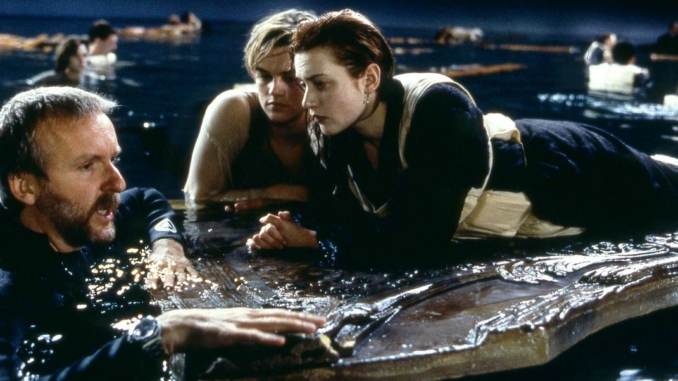
As a 12-year-old girl in suburban Ontario 25 years ago, I knew exactly what I wanted. I’d seen the posters, ads, and cover stories, and I knew that a saga about two star-crossed lovers doomed to endure one of the worst disasters in maritime history was tailor-made for my emotional heart. I wanted Titanic.
Unfortunately, my parents disagreed. After countless arguments over whether or not I could “handle” the contents of the only cinematic event that mattered, we came up with a compromise: I could see it when I turned 13 because it was rated PG-13. (Neither wanted to take me.) Realistically, they assumed that in those eight months, I would lose interest in what they considered “only a movie.”

But they were wrong: from December 1997 to the first week of September 1998, I managed to make Titanic my entire identity. I played both soundtracks on repeat in my room, trying to piece together scenes I’d watched in TV spots or in the video for “My Heart Will Go On.” I booked computer time at the library to watch the trailer for a full hour, and flipped through the official coffee table book every time I went to Chapters. I became fluent in Titanic despite only having basic knowledge of iconic scenes and key players. I even began pursuing a boy in class who had Leonardo DiCaprio’s haircut, certain he would become my own bad-boy-with-a-heart-of-gold (especially because he had actually burned down a house).
I think it’s difficult to understand the impact of Titanic unless it crossed your path at exactly the right time. Yes, adults flocked to theaters, breaking box office records that held in place for over a decade (until another James Cameron film, Avatar, dethroned it in 2009), and the fancy ones helped cement it as an Oscar-sweeping sensation. But outside of DiCaprio’s appearance the previous year in Romeo + Juliet, few films appealed as much to a generation who craved the drama and heartbreak that adulthood seemed to promise but had absolutely no real-life experience with it of. To be a tween suburbanite in 1997 was boring and parent or guardian-supervised. Movies like Titanic suggested there was something outside the boundaries of the local mall, inferring that given the right circumstances, we could upend our hum-drum lives in the name of love.

Of course, Titanic was more than just a love story. To history aficionados and film buffs, it was a testament to what one man can accomplish when obsessed with a tragedy and given a gargantuan budget. The movie’s special effects blur the lines between fantasy and reality, successfully recreating the horror of what Titanic’s passengers likely experienced while bringing to life key players like the ship’s band, the doomed Captain Smith, and the Unsinkable Molly Brown (the only character in the movie I’d actually want to hang out with today).
According to grown-ups I overheard talking about it, the love story between Jack and Rose was simply a means of bringing audiences along for a traumatic, albeit important, journey. Sure, both protagonists were fictional, but without convincing you to care about them and their peers over the course of the movie’s first half, the stakes wouldn’t have been so high through the second. The sinking of the Titanic was sad, but an ill-fated love story using the sinking as a backdrop? Devastating.
As a tween, I have to confess that before seeing the movie, I didn’t care at all about the emotional impact of such an event, or even the fact that over a thousand real-life people died either aboard the ship or in the water, all under unspeakable conditions. I only care about Jack and Rose. For me, Titanic was a three-hour opportunity to plug all of my young-person feelings into an outlet and release them. The night I finally rented it, I waited until my parents had left for choir practice, put on my best outfit, and readied myself to sob. I sat in the living room, sipping cola out of a glass like an adult, and cried because I was finally watching it. Then I cried even more.

I cried because the music was beautiful. I cried because Leonardo DiCaprio’s face was art. I cried because Jack and Rose didn’t end up together, and because the Irish mother in third class was forced to put her babies to bed, knowing they were going to die. I cried because children were wailing and dads were weeping and moms were screaming. I cried because the ship was beautiful and now it is ruined. I cried because the boy I liked at school didn’t like me. I cried because my cat wouldn’t sit on my lap so I could bawl into his fur. I cried because I had been crying for over two hours already, so why not cry until the credits rolled. I cried because it all seemed so big, and I still felt so small, and I knew I’d never get to see Titanic for the first time again.
